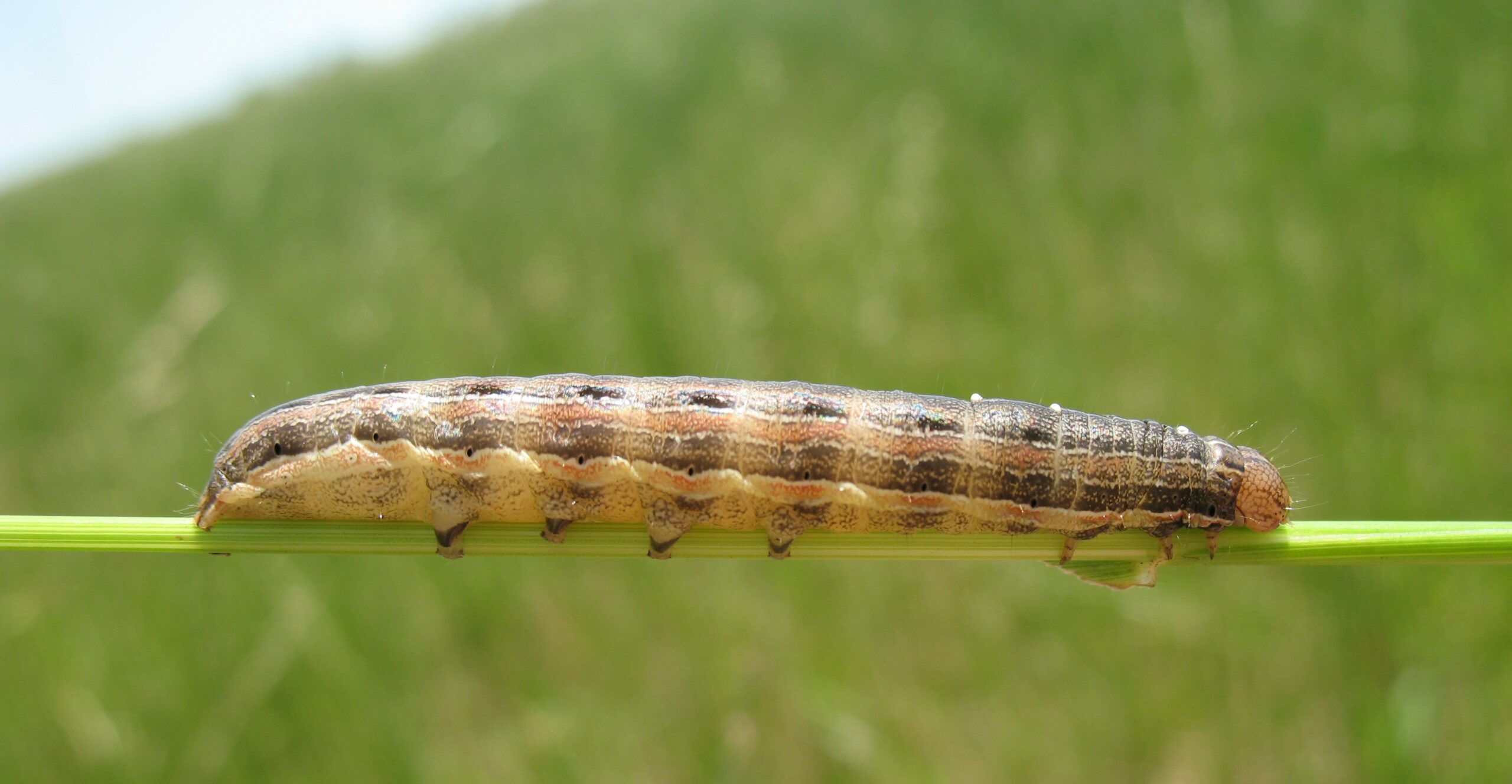Now is time to scout for true armyworms in Missouri

WEST PLAINS, Mo. — University of Missouri Extension agronomists in south-central, southwestern and northwestern Missouri have reported sightings of true armyworms.
In a press release, Sarah Kenyon, MU Extension agronomy specialist in West Plains, said “Farmers should be scouting pastures, wheat and corn fields for true armyworms to avoid damage. Dusk or dawn is the best time to scout for the insect because the young larvae feed at night. During the heat of day, they will hide under plant debris on the ground.”
Identifying true armyworm larvae
True armyworm larvae have an orange stripe along each side of the body and a dark spot or triangle on each of the abdominal prolegs located in the center of the body. The head is brown with honeycomb markings.
True armyworm typically feed on grass species, so pastures, wheat and corn crops are at highest risk. In pastures and wheat crops, treatment is justified when three or more non-parasitized, half-grown or larger larvae are present per square foot.
The insects will not only defoliate the plant, but they can clip seed heads as well. For seed crops, treatment is justified when 2%-3% of the heads have been cut. For corn crops, the economic threshold is when 10% or more of the plants are injured and larvae are less than ¾ inch.
If threshold levels are observed, farmers should treat the affected field quickly. Insecticides can be used, or the forage can be harvested by haying or grazing.
Importance of scouting
Farmers should continue scouting to verify the presence or absence of the parasites that can reduce some true armyworm population, Kenyon said. Affected armyworms will be dark in color and mummified on the plant stalk. The larvae will typically be positioned with the head pointed downward.
Also, true armyworm moths could migrate in and re-infest an area. For these reasons, she said, scouting fields is critical.
Farmers can find more information in the MU Extension guide “Management of the Armyworm Complex in Missouri Field Crops,” available for free download at www.extension.missouri.edu/g7115.
Miss Clipping Out Stories to Save for Later?
Click the Purchase Story button below to order a print of this story. We will print it for you on matte photo paper to keep forever.

